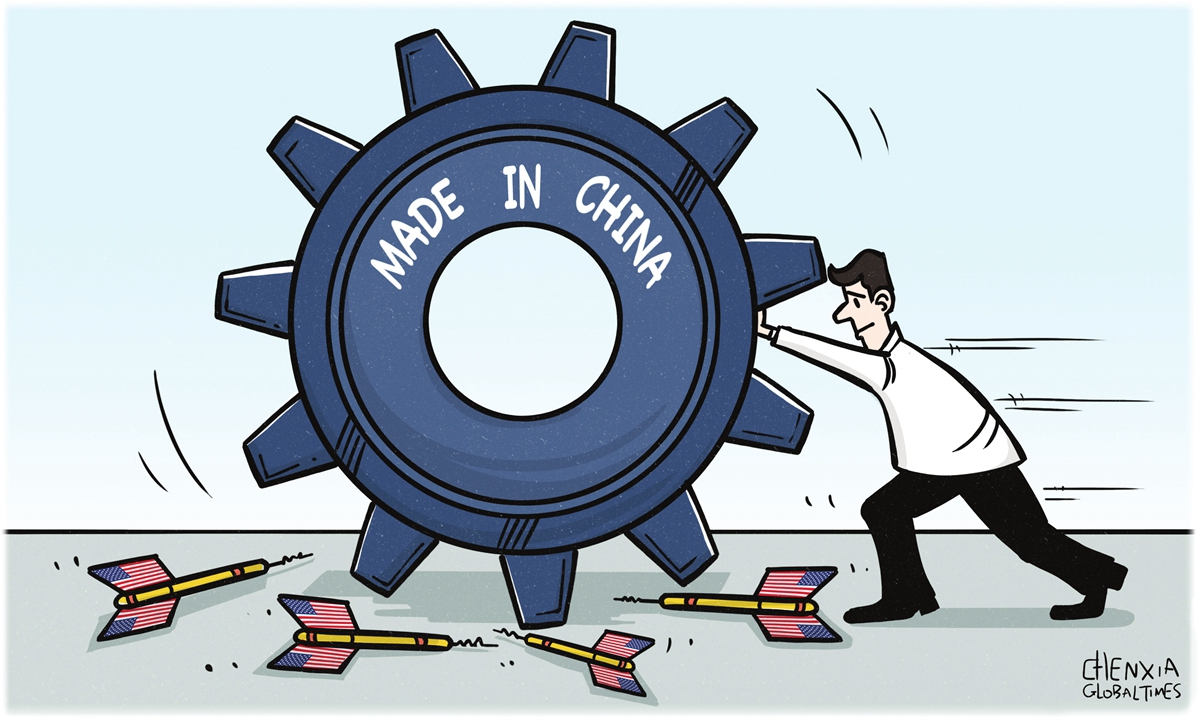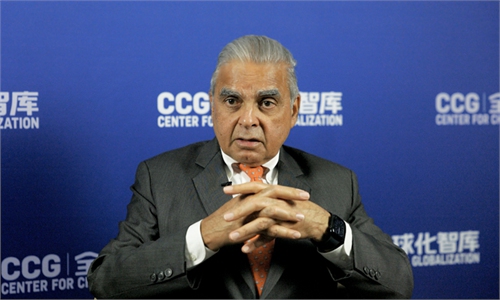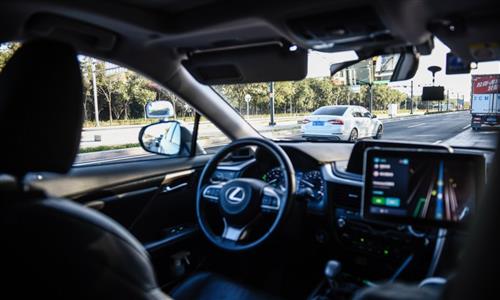Washington will grow increasingly agitated as its ‘Whack-A-Mole’ containment policy exhausts

Illustration: Chen Xia/GT
Many people enjoy playing the arcade game Whack-A-Mole. This game is characterized by the fact that, although you will get a high score in the allotted time, there will never be a complete victory, and the game seems to come to its end once the player is exhausted.
Washington's "Whack-A-Mole" containment policy is similar to a race against time, but time is clearly not on its side. The US is increasingly agitated by the exhaustion of such a policy.
China's manufacturing breakthroughs in various aspects are snowballing. The US is now facing not just one or a few major competitors, but rather a multitude of middleweight players that have quickly upgraded to heavyweight status.
Breakthroughs have occurred, from low-end toys and small electric appliances to high-end medical and mechanical equipment. Some of these breakthroughs are chip-related, but many more are chip-unrelated or use chips that China can manufacture independently.
I doubt whether the US has the "stamina" to continue to deal with the new battlefields popping up in all directions and engage in the no-end "war of science and technology."
According to the Biden administration's containment policy, there should be three phases: Firstly, deal a heavy blow to China's chip manufacturing, then restrain China's high-tech breakthroughs and development for a considerable period; and finally, enable the US to buy enough time to consolidate its global high-tech dominance and dominate the global market.
But time was not under Washington's control, and this containment policy has soon become exhausting.
Let's look at these new Chinese manufacturers that have emerged.
Firstly, China's production of new energy vehicles has had a significant impact on the global market. Some individuals in the US have expressed concerns that if not regulated, Chinese-made cars will dominate the streets of America. This is due to China's superior technology, such as advanced batteries, and their competitive pricing, which makes it challenging for the US to keep up.
Another area where China has shown technological superiority is the Chinese-made BeiDou system. The US National Space-based Positioning, Navigation, and Timing Advisory Board has warned that "GPS's capabilities are now substantially inferior to those of China's BeiDou."
Chips are what the US has stuck with and what it has a lot of. Still, Americans now fear China's massive investment in low- and mid-range chip manufacturing will eventually monopolize the entire market.
They believe that China would eventually isolate the high-end and make a breakthrough by encircling the low and mid-range. China is expected to soon be able to mass-produce 28nm chips, one of the most widely used worldwide and the most needed by the global manufacturing industry, including the US.
Of course, the US' biggest worry is whether China can independently develop and produce 5G chips. Will Huawei's upcoming phones be loaded with 5G chips? It's not confirmed yet, but speculation is already flying around, making Washington anxious. Some in the US Congress have chanted for stepping up comprehensive sanctions against Huawei.
More anxiety ensues.
China's breakthroughs in aircraft manufacturing, shipbuilding, high-speed rail, robotics, electronics, medical device manufacturing, agricultural technology, and many others will continue to grow, and the supply chains will expand in the coming years.
China's manufacturing breakthroughs to the high-end are inevitable at this stage. The US' containment has stimulated China to focus more on the high-end of the market and pay more attention to the low-end, mid-range innovation path.
The US has already experienced a period of explosive development, similar to what China is currently going through. Thanks to the information technology revolution, Washington has taken the lead in chip technology, computer usage, search engines, social media, big data and cloud computing. This wave of innovation has now reached China.
If the US attempts to hinder every innovation in Chinese manufacturing or any product that creates a dominant impact in the market and restricts those supply channels, Washington would need to excel in all manufacturing sectors.
However, achieving this objective is impractical. The politicians in Washington are relentlessly pursuing this unreachable aim. Let's see how things will develop.
The author is a senior editor with People's Daily, and currently a senior fellow with the Chongyang Institute for Financial Studies at Renmin University of China. dinggang@globaltimes.com.cn. Follow him on Twitter @dinggangchina



